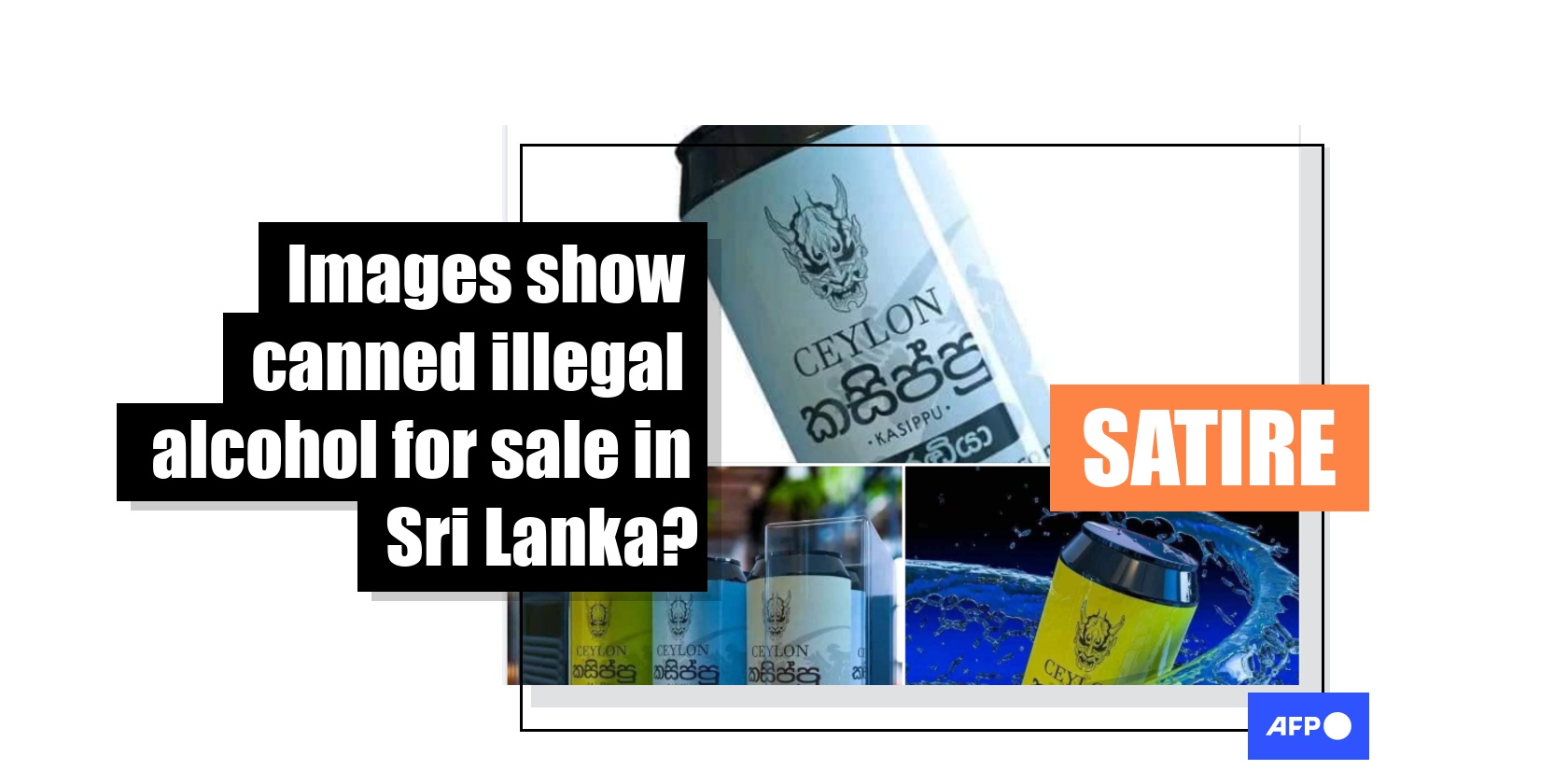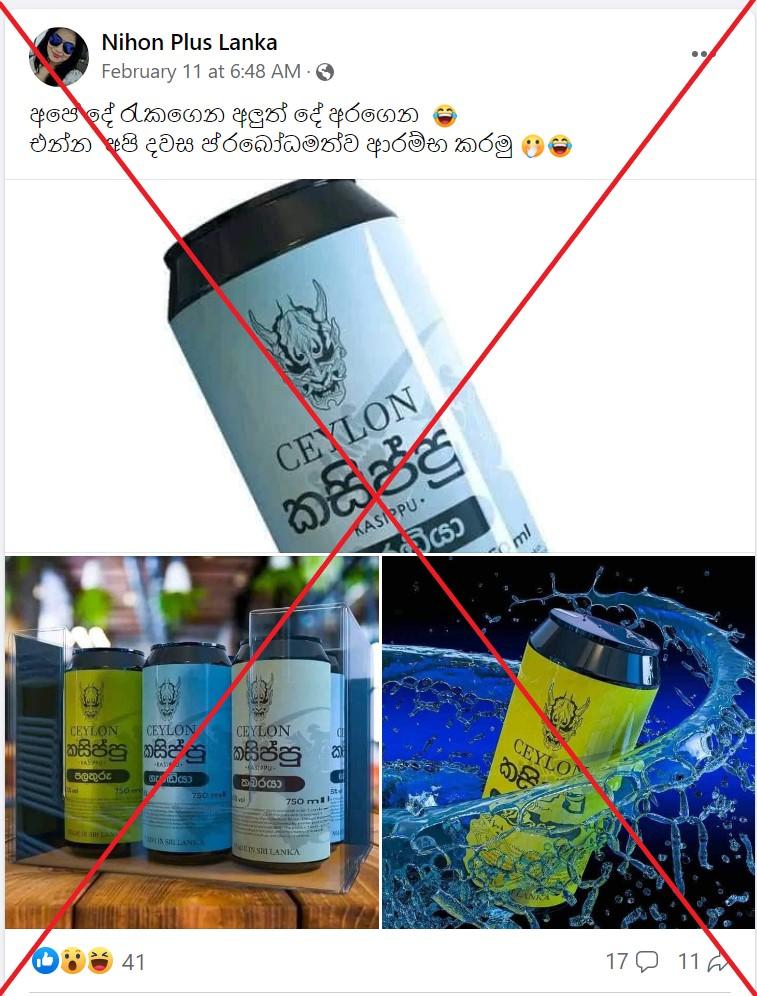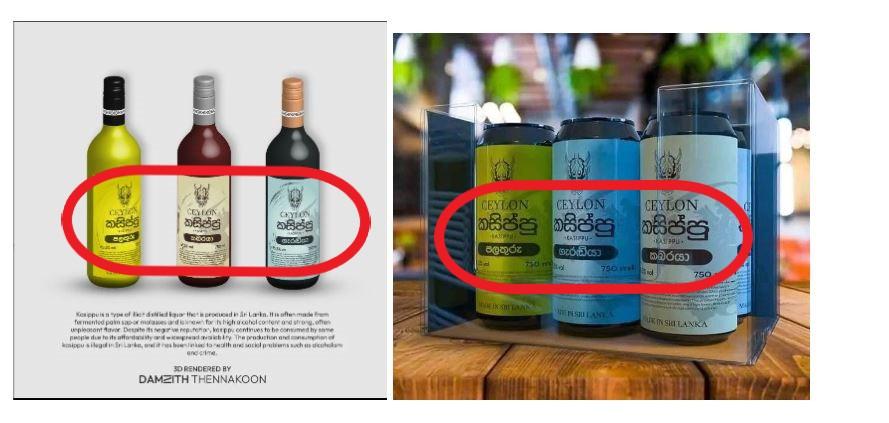
Satirical images of illegal Sri Lankan moonshine misrepresented as real product on Facebook
- This article is more than three years old.
- Published on February 24, 2023 at 06:09
- 3 min read
- By AFP Sri Lanka
The pictures apparently showing brightly-coloured cans of moonshine were posted by a Facebook page with more than 7,000 followers on February 11.
The labels read "kasippu", which is an illicit alcoholic beverage made from fermented fruit, sugar and yeast.
It is considered a poor man's drink as it is cheaper than other legally produced forms of alcohol but poses health risks including vision impairment and even death as producers sometimes add toxic ingredients such as methanol.
Consumption of kasippu and other illegally brewed local alcohol has reportedly soared in Sri Lanka as legal liquor prices increased due to import restrictions in the country, which has been suffering from a crippling economic crisis.
The Sinhala-language caption translates as: "Updating what's ours while protecting it."
The caption -- a spoof of a tagline used by a Sri Lankan television station to promote local products -- suggested canned kasippu was being sold locally.

The images were shared alongside a similar claim repeatedly on Facebook, including here and here.
Comments on the posts from social media users suggested they believed the kasippu was being legally canned and sold.
One user wrote: "With the import bans, what was illegal is now becoming legal. I fully support promoting local products but this is pathetic."
Another said: "Foreign liquor is really unaffordable now anyway. So this is what will be left for us, whether we like it or not."
Satirical bottle design
A closer analysis of the images found text indicating the different "flavours" of the drink written on the can includes "rat snake" and "monitor lizard" -- a reference to the unhygienic conditions in which kasippu is usually produced.
The drink's illegal status means it is normally brewed in jungles in order to avoid detection.
Keyword and reverse image searches found a similar design for a kasippu product in glass bottles -- rather than canned -- with the same "flavours" seen in the misleading pictures uploaded by Sri Lankan graphic designer Damsith Thennakoon to Instagram on January 30, 2023.
"I created the label designs for the bottles of kasippu as an experiment - it was also for satirical purposes," he told AFP on February 23.
"The images of the cans were not designed by me. After the photos of the bottles went viral, someone had designed the cans off my design," he said.
Below is a screenshot comparison of Thennakoon's design (left) and the misleading can design (right), with similarities marked by AFP:

Illegal liquor
Kapila Kumarasinghe, a commissioner at Sri Lanka's Excise Department, which is responsible for granting licenses to produce or sell alcohol in the island nation, told AFP on February 20, 2023 the images did not depict any approved product available for manufacture or sale locally.
"Kasippu is an illicit liquor variety. No such permission has been sought or granted for the sale or production of this specific product shown in the images nor for the sale of this illicit liquor variety," he said.
Kumarasinghe added the images had been brought to his attention after the department received inquiries about whether the product was real.
"We found out that these images were created only to showcase design ideas and are not reflective of any product available in the market," he said.
A spokesperson for Sri Lanka's Export Development Board also told AFP on February 22 it had not received any applications for permission to export the kasippu product seen in the misleading posts.
"This is not a product that is permitted for sale within the country. Therefore, this will never be granted approval to be exported," the spokesperson added.
Copyright © AFP 2017-2026. Any commercial use of this content requires a subscription. Click here to find out more.
Is there content that you would like AFP to fact-check? Get in touch.
Contact us
